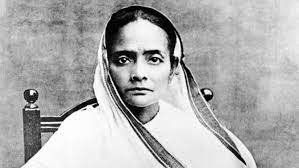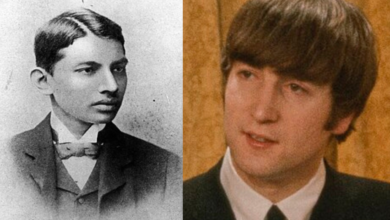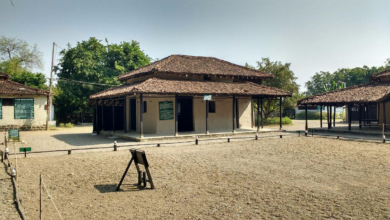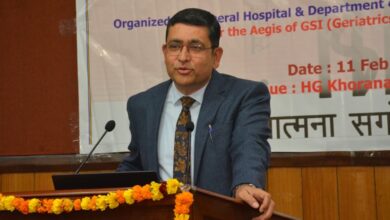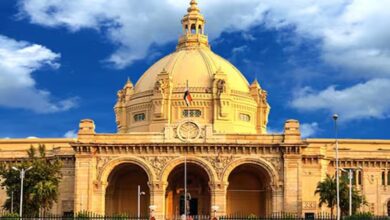Why Savarkar Opposed Kasturba Gandhi Memorial Fund?
Savarkar was charged in Gandhi murder conspiracy case
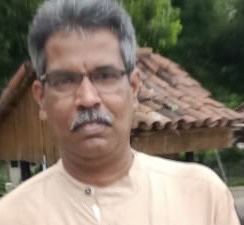
Siby K. Joseph
Why Hindu Mahasabha leader V D Savarkar opposed Kasturba Gandhi Memorial Fund? Kasturba Gandhi’s direct involvement in Satyagraha started from South African days. On 14th March 1913, the Cape Supreme Court pronounced a judgment that marriages not celebrated according to Christian rites and/or not registered by the Registrar of Marriages were invalid in South Africa.
Kasturba Gandhi’s leadership in this struggle prompted Sir Pherozeshah Mehta, to describe Kasturba as “one of the foremost heroines in the whole of the world”. It was the beginning of a long journey which culminated in her involvement in the Quit India movement.
Kasturba died on the altar of freedom struggle while serving prison terms at Aga Khan Palace, Pune on February 22, 1944.The most glowing tribute was given by Netaji Subhash Chandra Bose on her demise who said “I pay my humble tribute to the memory of that great lady who was a mother to the Indian people,…Kasturba has died a martyr’s death.”
The right wing leader V. D. Savarkar who was heading Hindu Mahasabha also sent a telegram on the very next day of her demise to Gandhi.“With a heavy heart I mourn the death of Kasturba. A faithful wife and an affectionate mother, she died a noble death in the service of God and man. Your grief is shared by the whole nation”.
This was reproduced by Savarkar in a written statement before the court of special Judge as evidence when he was charged as a suspect of Mahatma Gandhi murder case. At the same time he has not produced the two statements he issued in the months of May and June 1944 opposing the Kasturba memorial fund.
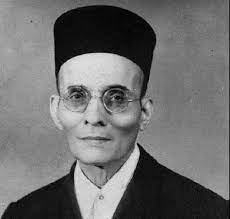
Though there are passing references by historians on the statement issued by V. D. Savarkar in this regard its contents were not subjected to careful examination. Karan Thapar in an interview with Rajmohan Gandhi, the well-known historian and grandson of Mahatma Gandhi in October 2021 asked a question: When Kasturba Gandhi died in 1944, Savarkar refused to contribute to a fund created in her name. How would you, therefore, describe the relationship between the two men?
Rajmohan Gandhi in his reply said “I won’t condemn Savarkar for not contributing to the fund created in Kasturba’s memory, which was set up, I might add, for the welfare and education of rural women. Yet, it should be remembered that apart from being Gandhi’s wife, Kasturba – who died while in detention in 1944 – she represented thousands who suffered greatly while in prison for participating in the Quit India Movement, even if not all of them died in prison, as Kasturba had died….
… He could not never accept Gandhi’s stress on Hindu-Muslim partnership or Gandhi’s uncompromising commitment to an India for all, not just for the Hindus. … Gandhi’s commitment to a free India, where the weakest Indian of any religion or any caste would have a role and would be respected.”
It was not a personal matter that Savarkar refused to contribute to a fund created in the name of Kasturba Gandhi. It is evident from the very title of his press statement issued on May 14, 1944. ‘The Hindu Sangathanists should not contribute a single pie to the Congressite Kasturba Fund.’ But the irony is that at the end of the statement Savarkar says that “I am issuing this statement in my personal capacity alone.”
In the very beginning of his statement he admits the fact that “The demise of the late Shrimati Kasturba was universally mourned by the Hindu Sanghatanists all over India, along with the Congressites especially and mainly owing to her death while she was sharing political imprisonment with her revered husband. This national honour done to-her memory did in fact pay the debt of gratitude we owed to her.” A revolutionary leader like Netaji Bose called Kasturba a martyr, on the other hand Savarkar was not ready to accept her contribution. He opined that there must always be a sense of proportion and her contribution was relatively insignificant in comparison to martyred men and women who died in their attempts to overthrow British rule by violent means. He alleged that the Congress and by Gandhi in particular condemned vociferously martyred husbands, sons, or brothers of these women ‘as murderers, anarchists, as a curse, as a blot on the ‘Indian’ culture and the Ahimsa Charkha politics’. Here we can see Savarkar’s strong opposition was not only to the Kasturba fund but also the philosophy of nonviolence which was the guiding principle of India’s struggle for freedom under Mahatma Gandhi’s leadership. According to Savarkar the proposal is definite in one point at any rate that it is to be handed over to Gandhi. Consequently, it amounts to nothing but a new Congressite fund which especially the Hindu Sanghatanists feel highly detrimental to their interest. Here he equates Hindu interest as true national interest. Further he states “Kasturba fund is bound to be spent directly and indirectly in propagating and popularising the ‘regional’ vivisection of India, perhaps especially among the women just as a large part of it will flow under-channel into the Moslem pockets as well as it is ostensibly reserved for the uplift of the Indian women. Under Gandhijis leadership the ahimsa, charkha, Hindu-Moslem unity and vote for the Congress cannot but be the chief planks on which he wants women also to work ….”
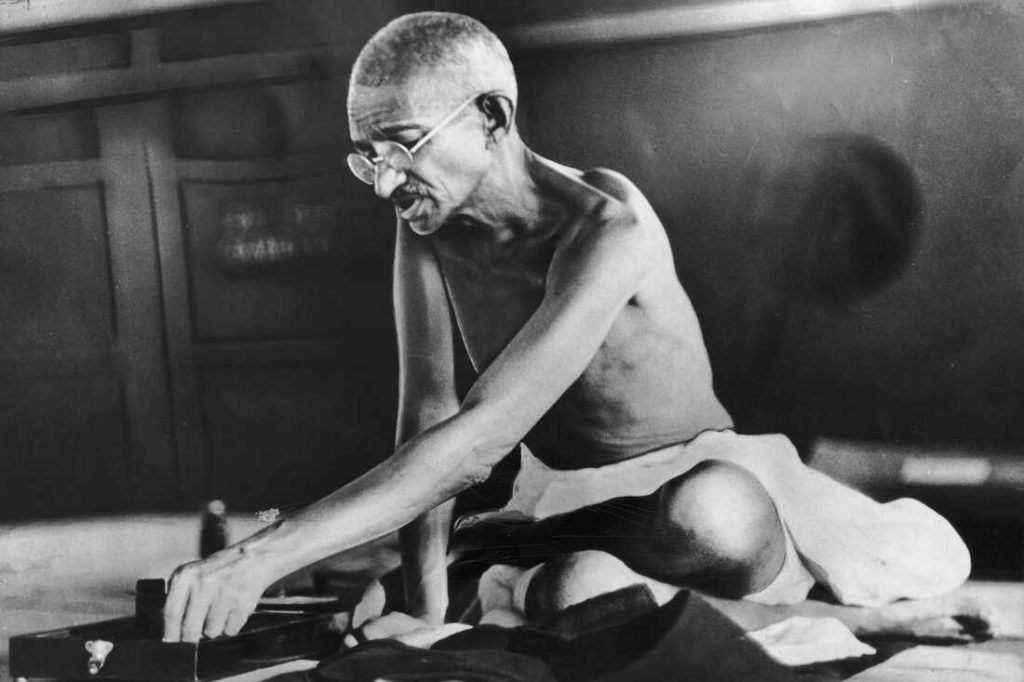
The press statement issued by V. D. Savarkar was criticized by people all over the country. Thakkar Bappa gave a public explanation that the Fund would not be utilised for any political purpose but would be spent in starting centres of education and general well-being of women and children, without distinction of race or religion. Despite all these developments Savarkar was more emphatic and issued another statement on June 1, 1944.
He further argued that Hindu and Muslim women and children were equally treated under the Congress and therefore it must flow into the Moslem pockets. In his statement he states that the second objection against the Kasturba Fund was more fundamental that was nothing but Mahatma Gandhi’s ideas and methodology of action. He even went to the extent of saying
“The Charakah chala chalake, Ham to Swaraj Lenge” the principle of absolute non-violence which is but absolutely sinful “ . The nation rejected the arguments of Savarkar and stood firmly behind the public appeal by leading personalities headed by Pandit Madan Mohan Malavia issued on March 8, 1944. The organizers wanted to raise by October 75 lakhs coinciding with Gandhi’s 75 birthday.Despite the fact that Congress leaders were in Jail, the response from the people was overwhelming . On 2nd October 1944 Sarojini Naidu on behalf of the people of India presented the purse, more than eighty lakhs had been collected and by the end of December 1945 it rose to Rs. 1,26,61,771. This response was nothing but acceptance of Kasturba as a martyr of Quit India Movement along with others and total rejection of Savarkar’s pleas.
About the Author
Dr. Siby K. Joseph is Director, Sri Jamnalal Bajaj Memorial Library and Research Centre for Gandhian Studies, Sevagram Ashram Pratishthan, Sevagram,Wardha- 442102, Maharashtra and Author of the book Kasturba Gandhi: An Embodiment of Empowerment

